Official Opening of the Constructed Wetland at Baby Hajigabul Lake in Shirvan, Azerbaijan

Baby Hajiqabul lake was threatened by raw sewage water pollution coming from a collector that receives sewage water from 200 houses near the lake. This village is not served yet by sanitary services. The UNDP-GEF Kura II project supported Azersu JSC. and the Ministry of Ecology and Natural Resources to solve this problem and reduce the pollution load released to the lake.
The UNDP-GEF Kura II project is financed from the Global Environment Facility and executed by the United Nation Development Program to support both Azerbaijan and Georgia in the implementation of the Strategic Action Program for water resources management.
The project hired an international consultant who designed constructed wetland on an area 4500 m2 on the fringes of the lake to treat the raw sewage water coming from that collector.
A Constructed Wetland is a natural-based technology used for small-scale wastewater treatment. This technology is widely used around the world to treat wastewater generated by small communities. The constructed wetland will improve the water quality flowing into the lake and reduce the bad smell coming from the water. It will also create a cleaner and healthier environment for those living nearby. The cost of using this technology is lower than using the traditional wastewater treatment technologies and its operation and maintenance cost is minimum compared to the traditional methods of wastewater treatment.
The Construction of this wetland started in December 2019 and ended on November 2020 by a national Azerbaijani company. The wetland was tested for operation and took samples from the inlet and outlet water to check its treatment performance level. The results of these water samplings showed a level of treatment 95% removal of the organic load and Ammonia, and 97% removal of the microbiological bacteria.
The participants walk through the constructed wetland facility where Mr. Ahmed A. Elseoud, the UNDP-GEF Kura II project CTA/RC explained to them the different stages of treatment the sewage water from the inlet to the final outlet. He mentioned that the quality of the outlet water can be reused for fish farming or in agriculture purposes, which consider a new non-conventional source of water for these purposes.
“This demonstration project must be announced to a wider audience to show how such natural based solution can be effective in treating sewage water and it should be replicated in other similar areas”, Mrs. Farida Alakbarova, The representative of the Ministry of Ecology and Natural resources said.
“The difference in quality between the inlet and outlet water is very obvious and Azersu is supporting the use of such environmental friendly solution for wastewater treatment and we will study how can we apply such technology in other areas”, Said Mr. Ceyhun Kazimov from Azersu.
The event ended with greetings from the participants to the project for this successful implementation of the is demonstration project and promised to continue its operation and maintenance as an innovative solution for sewage wastewater treatment.




